Confirmed speakers for the 2025 members' meeting include:
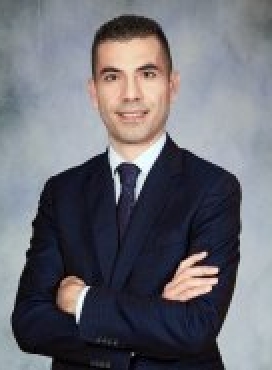
Enrico Bachis
Enrico Bachis joined IFFO in 2009 as Business and Information Manager and was then promoted to Market Research Director in 2017. He is responsible for the market intelligence produced by IFFO also representing the industry within the working group on agri-commodities of OECD-FAO. Enrico graduated from Cagliari University in Sardinia with a Political Science degree before obtaining an MSc in Financial Economics and a PhD in Industrial Economics from the University of Nottingham (UK).
- Market Forum Supply - Tuesday 21 October 2025
Chairman's Welcome
Fishmeal and fish oil supply: an overview of the global trends
- Market Forum Demand - Wednesday 22 October 2025
Chairman's Welcome
Fishmeal and fish oil demand: an overview of the global trends
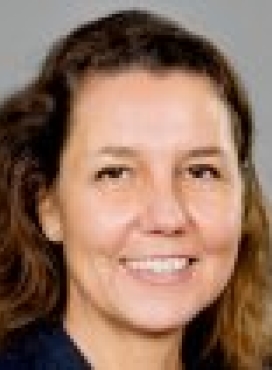
Anne Mette Bæk
Anne Mette is the Executive Director of EFFOP – Marine Nutrients Europe, the international association representing European fishmeal and fish oil producers. She also serves as Executive Director of Marine Ingredients Denmark, the national association for the Danish fishmeal and fish oil industry. With a strong background in food and fisheries policy, Anne Mette has extensive experience in public management, international relations, and political communication, drawing on her earlier career in the Danish Foreign Service.
Anne Mette has held several leadership and governance roles across the European fisheries sector. She is currently a board member of multiple European market and fishing organisations. From 2014 to 2021, she served on the IFFO Board of Directors, including terms as Vice President (2018–2019) and President (2020–2021). Her presentation, “European Fishmeal and Fish Oil: Production Insights and Regulatory Developments”, will provide an overview of current production trends in Europe and shed light on the evolving regulatory landscape impacting the sector.
- Market Forum Supply - Tuesday 21 Oct 2025
European fishmeal and fish oil: production insights and regulatory developments
Europe plays a central role in global supply of fishmeal and fish oil, yet faces challenges. This presentation will provide an update on 2025 production and expectations for 2026 in light of quota proposals, stock developments, and unresolved coastal states’ agreements. Key regional issues, including the Baltic Sea situation and the sandeel dispute, will also be highlighted. Recent industry initiatives such as the Responsible Pelagic Fisheries Management (RPFM) standard, North Atlantic Pelagic Advocay proposals, and new industry guidelines for fish oil for human consumption will be introduced. Finally, the presentation will address major EU regulatory and political developments shaping the sector, including Fisheries Control measurements, aquaculture policies and certifications, Brexit trade implications, A European protein strategy, and update on contaminants thresholds.
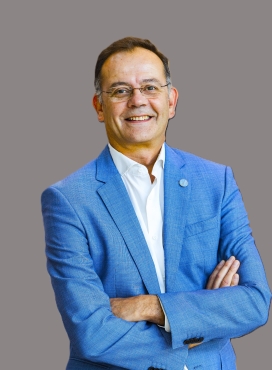
Manuel Barange
Professor Manuel Barange is Assistant Director General of the Food and Agriculture Organization of the United Nations and Director of its Fisheries and Aquaculture Division. He is an honorary professor at the University of Exeter, UK, and Visiting Professor at the Yellow Sea Fisheries Research Institute, CAFS, China. Barange was Deputy Chief Executive Officer and Director of Science at the Plymouth Marine Laboratory (UK) and Chair of the scientific committee of the International Council for the Exploration of the Sea. Professor Barange is a global fisheries and aquaculture expert, with particular focus on climate and anthropogenic impacts on marine ecosystems and on the role of aquatic foods in ending hunger and poverty. He has over 130 academic publications and is the lead Editor of the FAO flagship biennial publication “State of World Fisheries and Aquaculture”. He has contributed to several IPCC reports and was Review Editor of the IPCC special report on Oceans and the Cryosphere (SROCC). In 2010 he was awarded the UNESCO-IOC Roger Revelle Medal for his contribution to ocean science.
- Opening Session- Monday 20 Oct 2025
Production, consumption and sustainability trends in marine fisheries resources, with a focus on reduction fisheries, and expectations for the future
The fisheries and aquaculture sector is under continued transformation. In 2022 aquaculture overtook capture fisheries and the main producer of aquatic animals, and by 2034 it is expected to contribute 56% of total production. A growing proportion of aquatic animal production is devoted to direct human consumption, demonstrating its importance for food security and nutrition. At the same time, the sustainability of marine fisheries is challenging in some regions and species groups, which could compromise the achievement of expectations for the sector. This presentation will review the global status of production, consumption and sustainability trends, and will conclude with a call for a Blue Transformation to secure and expand the role of the sector in food security and nutrition strategies and objectives.
Panel Discussion: Navigating complexity
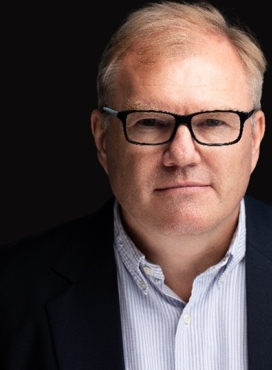
Thue Barfod
Following his graduation from The Danish Merchant Marine Academy as Master Marine and a few years at sea, Thue began his shore-based career in 2000 and has held various positions within the group in mainly Latin America and Asia. During his Time in South America he worked in the company’s Chilean country organization and later on as member of the Regional Reefer Management team covering Latin America from São Paulo.
In September 2006 he was asked to start up the dedicated reefer desk in Asia covering the Greater China Area, Hong Kong, and Taiwan a position he held until the end of 2009. In January 2010 Mr. Barfod relocated to Hong Kong, where he is heading Maersk Line's Reefer Business Development efforts in a region covering Asia Pacific, The Middle East and Indian Ocean. In May 2015 Mr Barfod took up the position as Maersk Line’s Global director of the Fish and Seafood Cargo segment a position he still holds today based out of Singapore.
- Market Forum Demand - Wednesday 22 Oct 2025
Analysis of the global shipping in 2025
Change and disruption have always shaped the global landscape, bringing both risk and opportunity. What has shifted since the 1990s is their pace: events that once unfolded a few times per decade now occur almost yearly. As business and politics grow increasingly intertwined, decisions made in one region quickly reverberate worldwide. Populism and a greater reliance on intuition over data have further fuelled outcomes once thought unlikely. In this presentation, Maersk will share how it navigates these dynamics and outline its approach to strengthening global supply chains.
Key themes include:
• An overview of the current state of global supply chains
• Insights into Maersk’s “Integrator” strategy
• Examples of the strategy’s tangible results
• A reaffirmation of Maersk’s commitment to its environmental pact
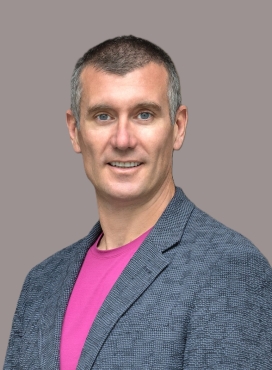
Richard P. Bazinet
Dr. Bazinet received his BSc from the University of Western Ontario (1998) and completed his PhD under the supervision of Dr. Stephen Cunnane at the University of Toronto in 2003. Dr. Bazinet then completed a postdoctoral fellowship in Dr. Stanley Rapoport’s Brain Physiology and Metabolism Section at the National Institute on Aging, National Institutes of Health. Dr. Bazinet joined the University of Toronto in 2006, where he is currently a Professor and Canada Research Chair in Brain Lipid Metabolism as well as the Associate Chair of Research and Innovation. Dr. Bazinet was the acting Chair of the Department of Nutritional Sciences in 2023-2024. Dr. Bazinet is the recipient of several awards, including, Early Career Award from the International Society for the Study of Fatty Acids and Lipids (2008); the Jordi-Folch-Pi Memorial Award from the American Society for Neurochemistry (2010); the Future Leaders Award from the International Life Sciences Institute (2011), Early Researcher Award from the Ontario Ministry of Research and Innovation (2011), the Young Scientist Award for the American Oil Chemists’ Society (2012), the Early Researcher Award from the Canadian Society for Nutrition (2016), the Chinese Association for Health Promotion and Education (2018), the Ralph Holman life time achievement award from the Oil Chemists’ Society (2020), the Chevreul Medal from the French Society for the Study of Lipids (2023), the Supelco American Oil Chemists’ Research Award (2025) and the International Award from Society for Chemical Industry Research (2025). Dr. Bazinet has also received the Faculty of Medicine Early-Career (2011) as well as the Mid-Career (2021) Excellence in Graduate Teaching Awards from The University of Toronto. Dr. Bazinet sits on several editorial boards and is currently Editor-in-Chief of Prostaglandins, Leukotrienes and Essential Fatty Acids and was previously a Senior Associate Editor of Lipids. The overall goal of Dr. Bazinet’s research program is to identify the mechanisms that regulate brain lipid metabolism (signaling) and to identify the role of brain lipid metabolism in the pathogenesis of neurodegenerative diseases and psychiatric disorders. Dr. Bazinet’s research is multidisciplinary but focuses on novel approaches to measure the turnover of lipids with an emphasis on translational research. Dr. Bazinet has published over 200 papers and given over 150 invited lectures, largely in the field of brain fatty acid metabolism and is co-author of the joint WHO/FAO joint expert consultation on dietary fats and the central nervous system during aging and disease and was previously the President and in 2023 became a Fellow of the International Society for the Study of Fatty Acids and Lipids.
- Market Forum Demand - Wednesday 22 Oct 2025
New Methods and Findings give us insights into Omega-3 requirements
Docosahexaenoic acid (DHA) is a 22‑carbon omega-3 fatty acid that is abundant in fish and accumulates in the human brain, where it supports many important functions. Despite its importance, there is no consensus on exactly how much DHA people should consume. In addition to obtaining DHA from fish, it can be synthesized in the liver from alpha‑linolenic acid (ALA), an 18‑carbon omega‑3 fatty acid that serves as a precursor. We recently found that dietary DHA can inhibit its own production from ALA. Building on this finding, we conducted a DHA dose‑response study in people who do not routinely consume DHA. The goal was to identify the dose at which DHA begins to suppress its own synthesis from ALA—a potential marker of the amount of DHA that is needed. We will present preliminary results from this new trial.

Aldo Bernasconi
Aldo Bernasconi is the VP of Data Science for the Global Organization for EPA and DHA Omega-3s (GOED). His responsibilities include coordinating the collection, analysis, and dissemination of information relevant to omega-3 markets, the development of GOED’s Clinical Study Database, and scientific research on the role of omega-3 fatty acids in health. He holds a PhD in mathematics from the University of Utah.
- Market Forum Demand - Wednesday 22 Oct 2025
An update on the Omega-3 Ingredient Market
The global EPA and DHA omega-3 industry continues to be a diverse, thriving market with global reach and a variety of sources feeding into a robust category backed by solid science. This talk provides an updated view of the size of the demand for omega-3 ingredient oils, and a summary of relevant current trends, challenges and opportunities.
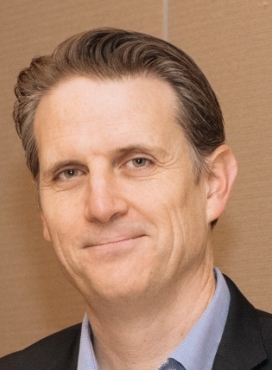
Drew Cherry
Drew Cherry has covered the global seafood, aquaculture and fisheries industries as a journalist, editor, commentator and speaker for over two decades.
- Opening Session - Monday 20 Oct 2025
Panel Discussion: Navigating complexity
- Market Forum Supply - Tuesday 21 Oct 2025
Panel Discussion: Exploring the feed ingredients ecosystem

Olivier Decamp
Olivier Decamp holds a biology degree from the University of Namur (Belgium) and a PhD in Zoology from the University of Leicester (UK). With 25 years of experience in aquaculture, he has specialized in intensive shrimp farming and has worked in various regions such as Asia and the Americas. Olivier had held positions at The Natural History Museum in London (UK), research laboratories in Hiroshima (Japan), The Oceanic Institute in Hawaii (USA), INVE Aquaculture, part of Benchmark Group and Grobest Holding before returning to INVE Aquaculture as the R&D and Business Development Health Director.
- Market Forum Demand- Wednesday 22 Oct 2025
Status of Asian shrimp aquaculture
Global shrimp production, dominated by P. vannamei, continues to grow despite rising feed costs, disease outbreaks, and shifting trade policies. Asia saw its first annual decline in a decade (2023–24), but recovery signs are emerging in key countries such as India and Vietnam. To stay competitive, Asian producers must reassess farming methods and harvest targets. While largely export-driven, rising domestic consumption—as in Thailand—is reshaping production priorities. The Asian industry’s sustainability will improve through the implementation of certified, traceable, region-specific practices and new technologies throughout the production cycle, as seen in Ecuador. Examples from key countries will illustrate how producers are adapting to market pressures while improving efficiency and environmental standards.
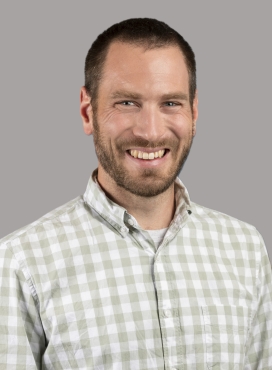
Christopher Free
Dr. Chris Free is an Associate Researcher at the University of California, Santa Barbara. His research program focuses on the impacts of climate change on ocean fisheries and on the development of management strategies for mitigating these impacts. Chris serves on the Scientific and Statistical Committee for the Pacific Fisheries Management Council and the NOAA Pacific Marine Mammal Scientific Review Group, among other scientific advisory groups.
- Market Forum Supply - Tuesday 21 Oct 2025
Impacts of climate change on global forage fish fisheries
Global shrimp production, dominated by P. vannamei, continues to grow despite rising feed costs, disease outbreaks, and shifting trade policies. Asia saw its first annual decline in a decade (2023–24), but recovery signs are emerging in key countries such as India and Vietnam. To stay competitive, Asian producers must reassess farming methods and harvest targets. While largely export-driven, rising domestic consumption—as in Thailand—is reshaping production priorities. The Asian industry’s sustainability will improve through the implementation of certified, traceable, region-specific practices and new technologies throughout the production cycle, as seen in Ecuador. Examples from key countries will illustrate how producers are adapting to market pressures while improving efficiency and environmental standards.
- Market Forum Supply - Tuesday 21 Oct 2025
Panel Discussion: Exploring the feed ingredients ecosystem
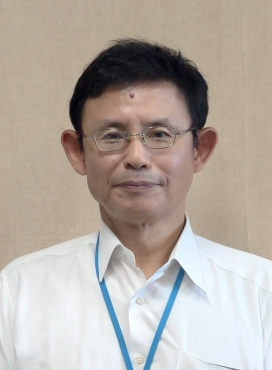
Hitoshi Fujita
Hitoshi Fujita is the current Director-General of the Fisheries Agency, a position held since July 2025. With a career spanning over three decades in fisheries and resource management, has held key leadership roles, including Deputy Director-General of the Fisheries Agency (2023–2025), Director-General of the Resources Management Department (2020–2023), and Director of various divisions within the Fisheries Agency focused on policy planning, aquaculture, and coastal fisheries. Earlier in his career, served in the Ministry of Agriculture, Forestry and Fisheries, as well as in prefectural government administration, bringing extensive experience in fisheries policy, resource management, and sustainable practices.
- Opening Session - Monday 20 Oct 2025
Official opening by the Director General, Fisheries Agency, Government of Japan
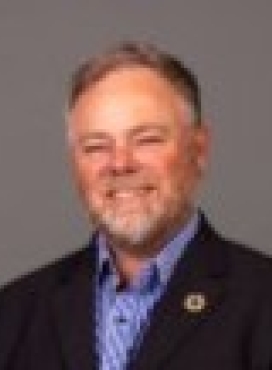
Dr Brett Glencross
Dr Brett Glencross is the Technical Director of IFFO (The Marine Ingredients Organisation). Prior to this role he was the Professor of Nutrition at the Institute of Aquaculture at the University of Stirling in Scotland. Over the past 25 years he has worked in various academic, institutional, and industrial roles across Australasia, the Middle East and Europe. His research achievements over this time have delivered many industrial outcomes resulting in the development of new processes, products, and applications. He was one of the former editors of the journal Aquaculture Nutrition from 2008 to 2016 and the former Chair of the International Society for Fish Nutrition and Feeding (ISFNF) from 2018 to 2024. Brett has a MSc in Biochemistry from the University of Western Australia and a PhD in Animal Nutrition from the University of Queensland.
- Market Forum Supply - Tuesday 21 Oct 2025
Panel Discussion: Exploring the feed ingredients ecosystem
Summary and conclusions from the Chairman
- Market Forum Demand - Wednesday 22 Oct 2025
Chairman's Welcome
Exploring global demands for marine ingredients
Port to Partner: Driving systemic change through technical leadership and strategic stakeholder engagement.
On the technical front, IFFO is advancing global best practices through research and data collection, promoting the circular use of by-products, supporting fishery management, applying a life-cycle assessment (LCA) approach, and contributing to safety standards. In parallel, IFFO has established a multistakeholder platform to identify gaps in practice and mobilise the value chain towards a shared vision of responsibility. This presentation will explore how technical and communications leadership are working hand-in-hand to drive systemic change.
Interactive Survey: Marine ingredients and human health
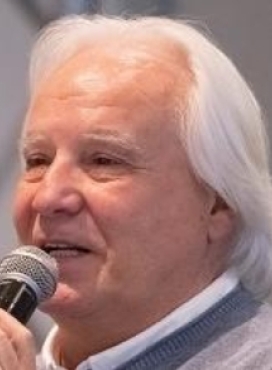
Eduardo Goycoolea
Eduardo is one of the founders of IFFO when former IFOMA an FEO were merged, being copresident during its first year. He has then been a Board member almost all the time, including Vicepresidency in 2016-2017 and then President for the 2018-2019 period. Eduardo was the Sales & Marketing Director for the Chilean fishing companies El Golfo, and then Blumar, for more than 20 years until 2015. He has also been a Board member of several other local and international organizations around the world, including being the Executive Director of New World Currents, a five chilean salmon producing companies joint venture to sell in China, and Director and vice President of Exapesca, a Chilean fishoil producers joint venture that sold their products together. He also represented GSI, the Global Salmon Initiative, in the ASC Steering Committee that developed the new ASC Feed Standard. Currently he is vice president of IFFO and also seats in the Governing Body of MarinTrust.
- Market Forum Supply - Tuesday 21 Oct 2025
Chile, Marine ingredients supply update
Eduardo’s presentation will include a review of the fishing regions in Chile, the fisheries status including quotas, catches and biomasses, as well as a short review of salmon harvests. To conclude there will be a short review of the recently passed new fishing law, and then will cover te current industry main challenges.
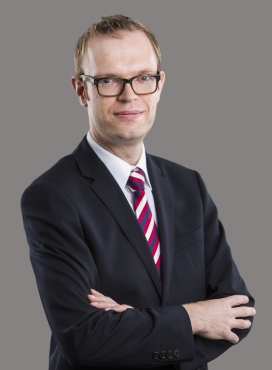
Robin Harding
Robin Harding is the Asia Editor of the Financial Times and is responsible for coverage from Australia to Afghanistan, as well as writing personally on the fast-growing region in the world economy. Previously an editorial writer, a Fed-watcher in Washington DC during the years after the financial crisis and the FT’s bureau chief in Tokyo, Robin combines his own perspective as an economics columnist with a reporter’s access to the politicians and policymakers in charge. He can offer a thought-provoking – and well-informed – perspective on developments affecting the Asian and the world economy.
Robin has lengthy experience as a keynote speaker and a moderator. He has been a panellist or moderated events at the IMF, the World Bank, several regional Federal Reserve banks and the Institute for International Finance. He has chaired contentious press conferences, which required firm control, as well as lighter-hearted events. He always tries to bring clarity and serve the audience. Drawing on his experiences covering monetary policy and his years in Japan – where he interviewed prime minister Shinzo Abe several times – Robin can speak about some of the biggest trends shaping the modern world: ageing demographics and declining interest rates, as well as the growth of China, and the geopolitical tensions that are reshaping Asia. Born in Durham, in the north of England, Robin has degrees in economics from the University of Cambridge and Hitotsubashi University. Before becoming a journalist, he worked in banking, asset management and public policy research.
- Opening Session- Monday 20 Oct 2025
Between the superpowers: Doing business in Asia at a time of geopolitical tension
Geopolitics is back. After three quiet decades following the fall of the Berlin Wall, we have seen the return of nation state warfare between Russia and Ukraine, conflict and upheaval across the Middle East, significant restrictions on global trade and superpower tension between the US and China. Businesspeople might like to ignore the politics – but the politics will not ignore you. What are the chances of conflict between the US and China over Taiwan and what would that look like? How is the rest of the region positioning itself diplomatically in the age of Trump? Do US tariffs presage the end of the era of globalisation and what are the prospects for global trade? With insight from the FT’s reporting with policymakers around the region, this talk aims to answer some of these questions.
Panel Discussion: Navigating complexity
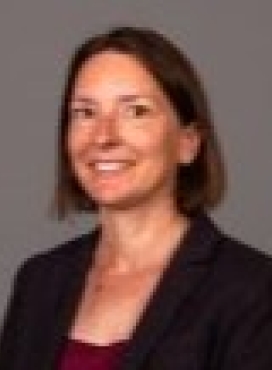
Veronique Jamin
Véronique joined IFFO in January 2019, bringing over 11 years of experience as Communications Director at the French division of a global water company. Prior to that, she served as a political advisor to local authorities. At IFFO, she leads the Secretariat of the Global Roundtable on Marine Ingredients and oversees stakeholder engagement. Véronique is a graduate of Sciences Po Paris and holds a bilingual French-German Master’s degree in Political Science.
- Market Forum Demand - Wednesday 22 Oct 2025
Port to Partner: Driving systemic change through technical leadership and strategic stakeholder engagement.
On the technical front, IFFO is advancing global best practices through research and data collection, promoting the circular use of by-products, supporting fishery management, applying a life-cycle assessment (LCA) approach, and contributing to safety standards. In parallel, IFFO has established a multistakeholder platform to identify gaps in practice and mobilise the value chain towards a shared vision of responsibility. This presentation will explore how technical and communications leadership are working hand-in-hand to drive systemic change.
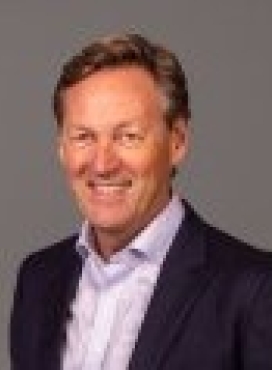
Petter M. Johannessen
Petter M. Johannessen has been heading IFFO The Marine Ingredients Organisation since 2018. He is passionate about seeing the contribution of marine ingredients to global food production recognised, while supporting continuous improvement and responsible practices. IFFO actively engages in and initiates collaborative efforts, considering them a cornerstone of its operations. Johannessen is notably recognised as a founding member of the Global Roundtable on Marine Ingredients, alongside the Sustainable Fisheries Partnership. Prior to his current role, Johannessen held industry executive positions including Global Business Director for Risk Management and Sourcing at Cargil Aqua Nutrition, as well as serving as Supply Chain Director and Global Sourcing and Purchasing Lead at EWOS Group.
- Opening Session - Monday 20 Oct 2025
Opening Remarks
Navigating complexity
Summary and conclusions
- Market Forum Demand - Wednesday 22 Oct 2025
Summary and conclusions
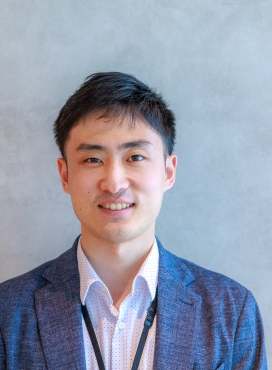
Hikaru Kondo
Hikaru Kondo is fish meal and fish oil trader for Kanematsu corporation, which is trading house company, headquarters based in Tokyo, Japan. After graduating college, working in seafood industry and marine ingredients industry with eight years of experience, professional on trading and marketing of this business. Nowadays, focusing on getting a sustainability certification regarding Japanese fishery, certain species, and production to create new business as Kanematsu.
- Market Forum Demand - Wednesday 22 Oct 2025
Fishmeal and fish oil consumption trends in Japan
This presentation explores two key dimensions of Japan’s fishmeal and fish oil consumption landscape: statistical demand and aquaculture realities. The first section provides a data-driven overview of Japan’s 600,000-ton aquatic feed market, examining consumption volumes of both imported and domestically produced fishmeal and fish oil. It highlights emerging preferences and growth trends using relevant statistical insights. The second section delves into the practical aspects of Japanese aquaculture, focusing on major farmed species such as yellowtail, sea bream, coho salmon, and eel. It outlines the specific requirements, biological sensitivities, and sustainability considerations associated with each species, supported by contextual information on farming regions and environmental conditions.
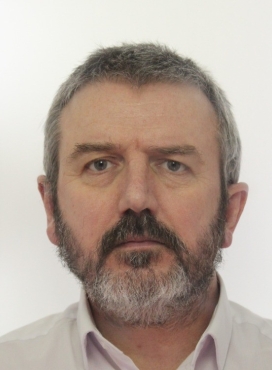
Matt Longshaw
Dr Matt Longshaw joined Calysta in June 2021 and leads the R&D for animal feeds, including for aquaculture and pet food. Between 2013 and 2020, he was a development manager at Benchmark Animal Health, leading the pharmaceutical development programme. Prior to this, he was a senior research scientist at Cefas, the UK government laboratory in Weymouth, Dorset where he headed a team of scientists studying individual and population health. He holds a PhD in veterinary pathology from the University of Plymouth and has published extensively in the areas of health and nutrition.
- Market Forum Supply- Tuesday 21 Oct 2025
Status for single-cell protein production
In addition to the use of novel protein sources such as insects and plants, recent technological advances have led to the development and refinement of methods to cultivate single cell proteins at scale. Initial work focussed on the scale up from lab to pilot scale and on studies to determine inclusion levels in feeds and their effects on animal production measures. However, more recently, the focus has shifted towards a greater understanding of the biological functionality of these protein sources and their potential beyond merely a protein replacement. These proteins are not intended to replace more traditional protein sources, rather they are expected to support the wider ingredients industry by providing these additional functional benefits alongside more traditional protein sources. This presentation will provide an update on the current global status of single-cell production with a focus on those commercial entities that are working at pilot and at scale up. It will address the biological, technological, commercial and regulatory benefits and drawbacks associated with these complementary protein sources.
- Market Forum Supply - Tuesday 21 Oct 2025
Panel Discussion: Exploring the feed ingredients ecosystem
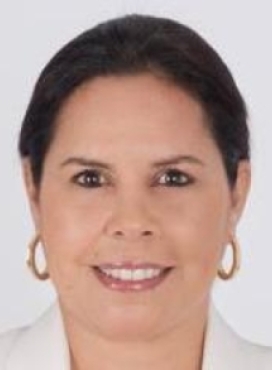
Jessica Luna
Ms. Luna is the President of the National Fisheries Society (SNP) of Peru, an organization that represents the country's fishing industry, promoting its development, sustainability, and global leadership.Since 2022, she is also a Board Member of Enaex, a Chilean company of the Sigdo Koppers group. Before joining the SNP, Ms. Luna was the Executive Director of the Peruvian Foreign Trade Society (ComexPerú), a business association that promotes free trade and investment. During this time, she served as the Executive Director of the APEC CEO Summit 2016 and as Chief Advisor for the APEC CEO Summit 2024. Previously, she worked at government agencies and international organizations, including the Inter-American Development Bank (IDB) in Peru and the United States, as well as the Ministry of Foreign Trade and Tourism of Peru.
Ms. Luna holds a bachelor’s degree in economics from the Universidad Católica del Perú and a master’s degree in public administration in international development from the John F. Kennedy School of Government at Harvard University.
- Market Forum Supply - Tuesday 21 Oct 2025
Update on the Peruvian supply of marine ingredients
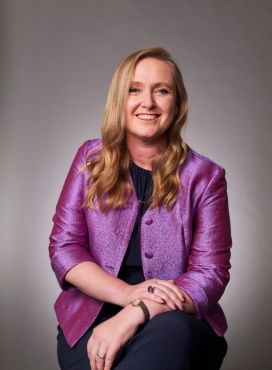
Darian McBain
Darian McBain is a globally experienced Chief Sustainability Officer (CSO), advisor and board member. She is a world recognised expert, speaker and author on sustainability, ESG, supply chains, ocean economy, business human rights and sustainable finance. She is a UN SDG Pioneer for a Sustainable Ocean Economy 2021, a Fast Company Most Creative People in Business 2020, and was named one of Asia's Top Sustainability Superwomen.
Darian is the CEO and Founder of Outsourced Chief Sustainability Officer Asia (OCSO Asia). In this role she has worked with organisations as diverse as commodity producers in the agriculture sector, WWF, UNEP, Minderoo Foundation, venture capital funds focused on climate and agriculture, and advisor to several startups. She is also a Senior Fellow for a Just Nature Transition with the Monterey Bay Aquarium, working on projects focusing on nature and finance in small scale aquaculture production. Darian was the inaugural Chief Sustainability Officer for the Monetary Authority of Singapore (MAS) and the first CSO for a central bank globally. Prior to this, she was the Global Director of Corporate Affairs & Sustainability for Thai Union, creating an award winning sustainability strategy and working on wild capture and farmed seafoods globally. Darian is an experienced communications professional, working on staff and change engagement, corporate storytelling, brand profile and reputation management. She is a published author, with books, academic articles and blogs published in traditional and social media. She is a regular speaker and commentator at conferences, on television and webinars, and is a member of several not-for-profit boards.
- Opening Session - Monday 20 Oct 2025
Who is Responsible for Responsible Production?
In this opening session, Navigating Complexity in Responsible Aquaculture Production, we examine the accelerating growth of aquaculture and blue food systems across Asia Pacific, driven in part by rising awareness of their health benefits and in part by impacts of climate change. This consumer shift is reshaping demand and catalysing innovation in responsible sourcing and production. At the same time, sustainable finance is emerging as a critical enabler—aligning capital with climate resilience, biodiversity, and equitable food systems. By unpacking the interplay between health-driven consumption, production practices, and financial innovation, we explore how these forces can converge to scale nature-positive solutions. The session invites reflection on how strategic investment and evidence-based policy can unlock transformative change across seafood supply chains, advancing both planetary and human well-being in an era of complexity.
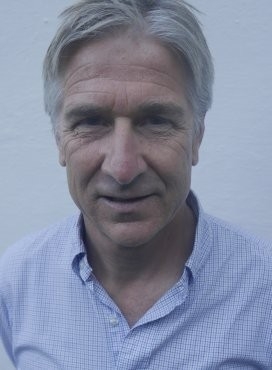
Christian Meinich
Christian Meinich joined Chr. Holtermann AS, Oslo, Norway in 1987 and is today the Senior Partner of the company. Holtermann is an independent commodity brokerage house est.1916, mainly brokering raw materials for the food- feed- and technical industries. Christian is also past president of FOSFA International, London, a contract issuing and arbitral body covering 85% of the global trade in oils and fats. Christian holds a BSBA degree in Finance from University of Denver and an MBA from UCLA Anderson School of Management.
- Market Forum Demand – Wednesday 22 Oct 2025
Major trends in fish oil production, consumption and trade
Prices corrected sharply throughout 2024 from historic highs in 2023 during El Niño. The trendline has flattened out during the last months, but is still negative for the year overall. There has been some predicted growth in demand, as well as in the supply of alternative sources of EPA and DHA. On the other hand, fish oils have produced sub-optimal fatty acid profiles both for the Omega3- and feed segments. This can to some extent be explained by natural fluctuations, but also in part reflect a backdrop of diverging growth developments between different species and global supply regions over the last years. With this backdrop, combined with a collective memory of considerable price fluctuations over the last years, the markets are now turning focus to the upcoming season in Peru with a cautious approach.
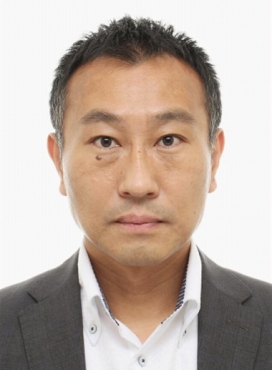
Yohei Saratani
Yohei Saratani joined Nissui Corporation in 2001 and currently serves as Manager of the Fish Meal and Oil Section within the Fisheries Business Department 3. With over two decades at Nissui,Mr Saratani brings extensive expertise in fisheries operations, seafood processing, and resource management.
- Market Forum Supply - Tuesday 21 Oct 2025
Fishmeal and Fish Oil in Japan: A Supply-side Perspective
This presentation discusses the latest trends in the fishmeal and fish oil production in Japan, using statistical data to also provide a future outlook. Domestic production has been steadily declining, while demand remains heavily dependent on aquaculture, making the market unstable. Further decreases in domestic supply are expected to heighten reliance on imported materials. In contrast, fishmeal derived from Japanese sardines caught in Hokkaido, the catches of which have increased in recent years, has gained importance in both domestic supply and export markets, particularly within the high-protein fishmeal sector. In addition, major farmed species such as yellowtail (hamachi) and Japanese eel play a significant role in shaping the distinctive characteristics of Japan’s fishmeal and fish oil markets.
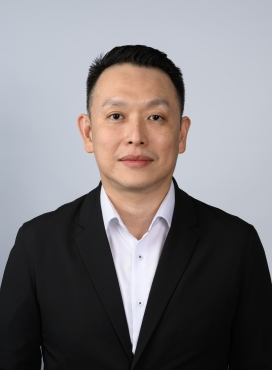
Oscar Tjakra
Oscar is an Executive Director in Rabobank's global RaboResearch Food & Agribusiness department. He is located in Singapore, and focuses on grains, oilseeds and soft commodities sectors. He is frequently invited to speak at various Agri commodities outlook conferences. In his previous role, he was Senior Vice President of Freight Research with Oldendorff Carriers Singapore, where he led global supply and demand research of the grains & oilseeds sector.
Oscar holds a Master of Science in Applied Finance from Singapore Management University and Bachelor of Engineering (Hons) from Nanyang Technological University.
- Market Forum Supply- Tuesday 21 Oct 2025
Global Price Outlook
Global supplies of grains and oilseeds (G&O) are expected to remain ample through the remainder of 2025, likely keeping prices range-bound. In contrast, global vegetable oil prices are projected to stay supported, driven by structural shifts in supply and demand. Beyond 2025, the outlook for G&O and vegetable oil prices remains uncertain. Key factors influencing future supply and demand include weather variability, uneven population growth, and evolving biofuel and decarbonization policies. Additionally, trade dynamics and strategic priorities across the value chain may continue to shift amid ongoing geopolitical tensions.
Panel Discussion: Exploring the feed ingredients ecosystem
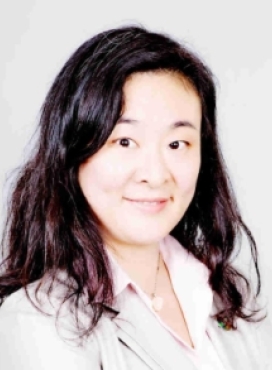
Maggie Xu
Maggie Xu joined IFFO in October 2011 as the China Manager and was promoted in October 2013 to China Director. She was previously a Trade Commissioner responsible for fish, seafood, meat and processed food and beverage products at the Embassy of Canada to the P. R. China for ten years. Maggie has a B.A. degree in English language and completed a summer school jointly given by London School of Economics and Peking University on international finance.
- Market Forum Demand - Wednesday 22 Oct 2025
China Market Update
Price reversion and decreased profitability have slowed down domestic marine ingredients production in China since 2024. Restricted availability of raw material whole fish just adds insult to injury hence the outlook of domestic output is not very optimistic this year either. Robust demand by aquaculture sector supported China’s fishmeal import to a historical high level last year and the trend continues into this year, also thanks to high inventory of piglets. Fish oil imports have been growing substantially too, following the price drop and rising demand by human consumption as well as pet food sectors particularly. The decline in profits and prices led to clear reduction in feed grade fish oil export this year by China. Overall fish oil exports in 2025 may see a downturn. Last but not least, consumption of fishmeal is promising this year given the expansion in aquaculture and pig production. Similarly fish oil consumption in 2025 is expected to grow in both feed and human consumption segments following the price retreats.











